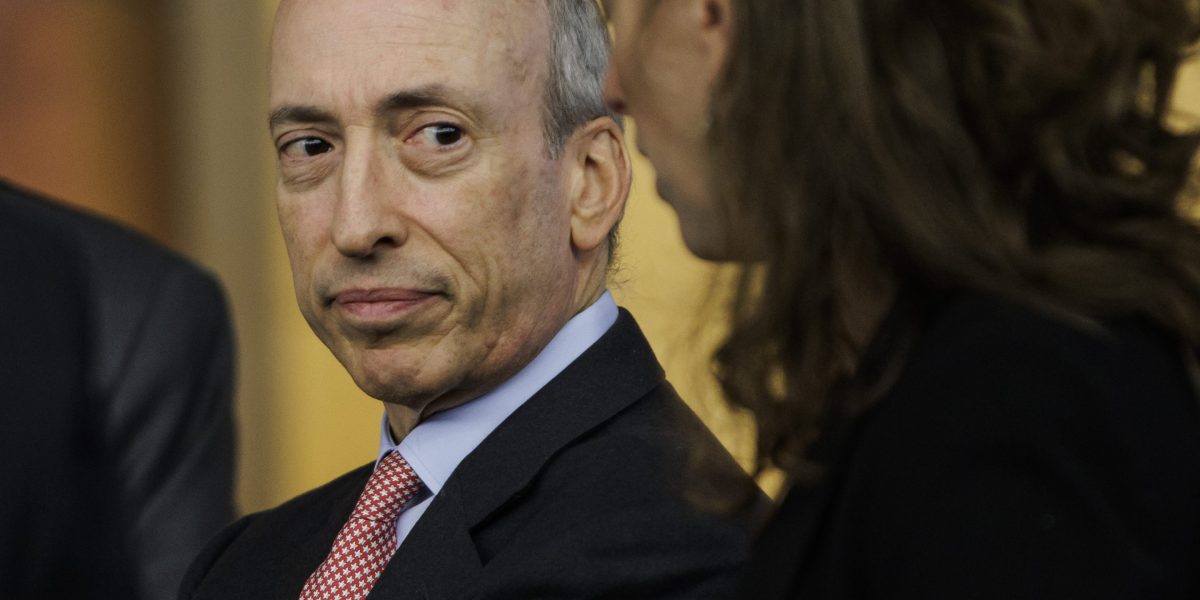
Gary Gensler is set to leave his post in just a month’s time, but the controversial chair of the Securities and Exchange Commission is continuing his agency’s aggressive campaign against the crypto industry until his last days in office.
Last week, the SEC issued a Wells Notice—a warning-shot letter that informs an individual or a company that the agency intends to file a lawsuit—against Unicoin, a U.S.-based crypto investment company.
According to the Wells Notice, viewed by Fortune, the SEC plans to formally accuse Unicoin of violations related to fraud, deceptive practices, and the offering and sale of unregistered securities, although the letter did not specify the exact violations.
In an interview with Fortune, Unicoin CEO Alex Konanykhin said that the SEC’s crypto enforcement division issued subpoenas against his company and others in May. Those subpoenas concerned Unicoin’s main product, a cryptocurrency backed by real-world assets, including what Konanykhin described as billions of dollars’ worth of real estate holdings.
While Konanykhin said that Unicoin’s lawyers are working on a response, which is due on Dec. 24, he expressed a common sentiment felt across the crypto industry, which largely views Gensler’s onslaught of enforcement actions as politically motivated. “I can only say one word: bulls–t,” Konanykhin told Fortune. “Complete and utter bulls–t.”
The Wells Notice is notable, however, in that it poses fraud-related violations against Unicoin that did not appear in other recent lawsuits against prominent crypto companies such as Bitcoin as the largest cryptocurrency. It has an unusual structure, with the token collateralized by real-world assets such as real estate holdings. In one deal earlier this year, Unicoin announced that it had acquired nearly 8,000 acres of land in the Bahamas valued at over half a billion dollars in exchange for the future promise of its tokens. Konanykhin claims that the company has sold $3.5 billion worth of Unicoin tokens through such deals, including buy-now-pay-later agreements, to around 70,000 investors. Unlike other projects, Unicoin maintains that its token is a security, and Konanykhin says that it has publicly reported with the SEC for five years, though it never managed to register the security with the SEC.
Still, because of its novel approach, Konanykhin told Fortune that the company has been subject to several SEC investigations, though the latest is the first to result in a Wells Notice. He said that the company had entered into a so-called standstill agreement with the SEC earlier this year not to conduct an ICO or go public, but Konanykhin said he decided to breach the agreement after Trump won the recent election. Unicoin had previously filed paperwork with the agency announcing its intent to go public through a reverse merger.
Konanykhin maintains that the SEC’s action is retribution for Unicoin’s plans to move forward with its untested securities token offering. “How did we get so important to become the final focus of the SEC?” he said.
Still, the fraud-related violations in the letter signal that the SEC is targeting different kinds of charges than it leveled against Coinbase and other companies. With Gensler racing against the end of his tenure, however, it is unclear whether the agency will have time to file a lawsuit before a new chair enters office.
This story was originally featured on Fortune.com


















































































































































